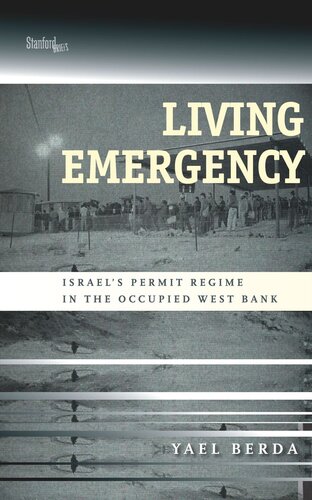

Most ebook files are in PDF format, so you can easily read them using various software such as Foxit Reader or directly on the Google Chrome browser.
Some ebook files are released by publishers in other formats such as .awz, .mobi, .epub, .fb2, etc. You may need to install specific software to read these formats on mobile/PC, such as Calibre.
Please read the tutorial at this link: https://ebookbell.com/faq
We offer FREE conversion to the popular formats you request; however, this may take some time. Therefore, right after payment, please email us, and we will try to provide the service as quickly as possible.
For some exceptional file formats or broken links (if any), please refrain from opening any disputes. Instead, email us first, and we will try to assist within a maximum of 6 hours.
EbookBell Team

4.8
64 reviewsIn 1991, the Israeli government introduced emergency legislation canceling the general exit permit that allowed Palestinians to enter Israel. The directive, effective for one year, has been reissued annually ever since, turning the Occupied Territories into a closed military zone. Today, Israel's permit regime for Palestinians is one of the world's most extreme and complex apparatuses for population management. Yael Berda worked as a human rights lawyer in Jerusalem and represented more than two hundred Palestinian clients trying to obtain labor permits to enter Israel from the West Bank. With Living Emergency, she brings readers inside the permit regime, offering a first-hand account of how the Israeli secret service, government, and military civil administration control the Palestinian population.
Through interviews with Palestinian laborers and their families, conversations with Israeli clerks and officials, and research into the archives and correspondence of governmental organizations, Berda reconstructs the institutional framework of the labyrinthine permit regime, illuminating both its overarching principles and its administrative practices. In an age where terrorism, crime, and immigration are perceived as intertwined security threats, she reveals how the Israeli example informs global homeland security and border control practices, creating a living emergency for targeted populations worldwide.